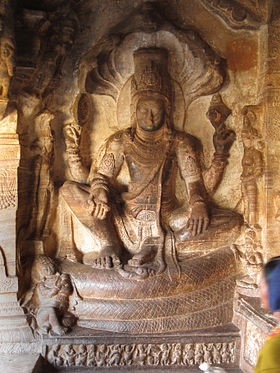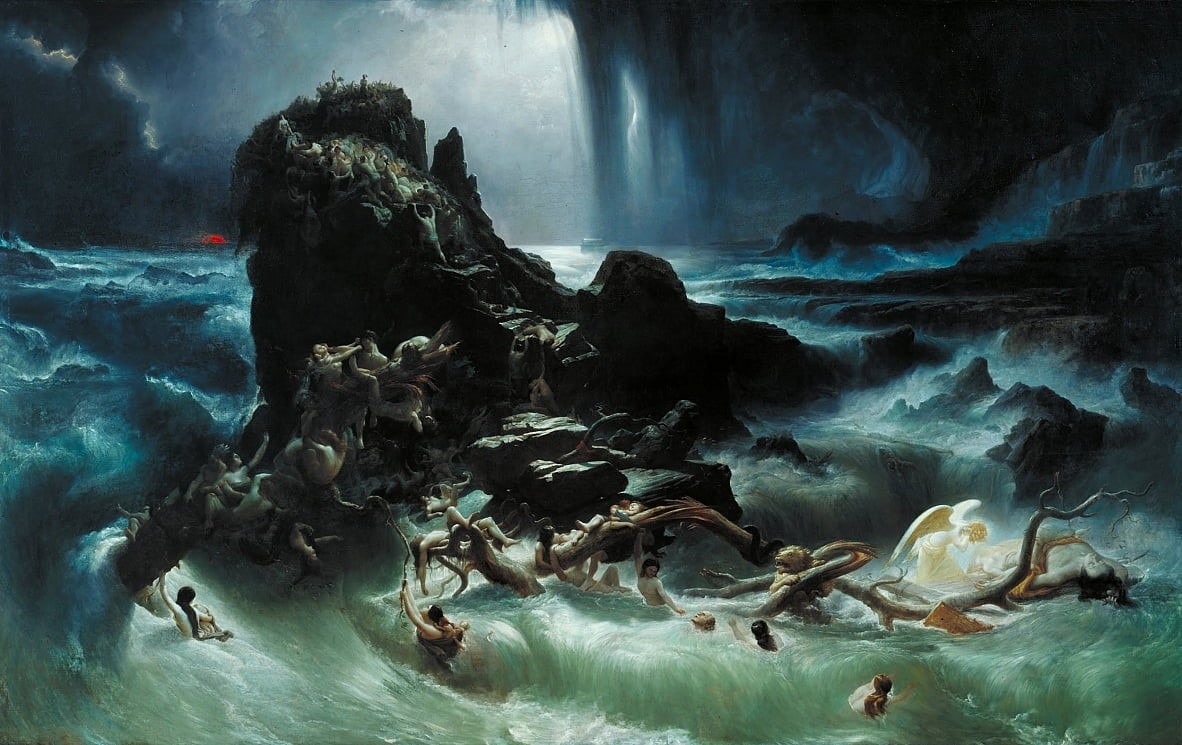Contrary to what one might think, the biblical myth of the deluge where, for forty days and forty nights without interruption, torrential rains covered the earth, is not an exclusive account of the seventh chapter of the book of genesis. Nor is Noah the only surviving hero of the antediluvian world. Indeed, the myth in question, undoubtedly conveyed since the earliest times by the collective unconscious, is present in different cultures and civilizations, even omnipresent, given that exegetes have succeeded over time in counting more than six hundred versions related to it.
Of the flood and some of its identities
According to the researchers, the oldest account of the flood would be Sumerian and would mark in Mesopotamian mythology the possibility for humans to protect themselves, as well as all living beings, from the danger of the extinction of species. Indeed, the wise Xisuthrus had a premonitory dream of an imminent deluge, which prompted him to build a boat on which he embarked all the living species, which sailed with him for seven days of rain covering the whole earth until that, as the waters receded, the boat ran aground on Mount Ararat, Turkey’s highest peak. It is clear that the story, engraved in cuneiform characters on one of the twelve tablets of theEpopeof Gilgameshis like a propaedeutic of that of the Bible, the two maintaining a number of similarities, Noah being, moreover, the Hebrew younger brother of his elder, the Sumerian sage Xisuthrus.
Among the ancient Greeks, the myth of the deluge unfolds in several stories, the most notorious of which are undoubtedly that of theAdelona chaotic period preceding the mythycon, mythical period, flood caused by the disorder of the universe; and that of Deucalion, provoked by Zeus himself. In the second, as it happens, the god of Olympus chooses to spare two humans, Deucalion and Pyrrha, who subsequently repopulate the earth.
Among the Romans, as we learn in theNatural History of Pline, a deluge would have fallen on central and northern Italy which would have survived the Umbricior the Umbrians, a people designated by this name because a shadow hangs over the mystery of their survival from the torrential rains which had completely submerged the earth.
In Scandinavian mythology, the god of gods, Wotan, exasperated by the pride of Aurgelmir, the king of giants, mutilates him and throws him into the abyss separating the kingdoms of fire and cold. Aurgelmir’s blood then flows so freely that it becomes diluvian and floods the whole earth, consequently killing all the giants. Only his grandson and his wife survive there and repopulate the earth with a lineage that will be humanity.
Among the Persians, Jamshid, the greatest and most magnanimous of the shahs of the Zoroastrian religion, was warned by the god of Wisdom and Time, Ahura Mazda, that a deluge, resulting from the melting of snow accumulated during a terrible winter season, threatens the earth. Thus Jamshid arranges a cave in which he shelters with some other Men and various animal and vegetable species, which will all be saved at the same time as the shah.
Hindus, for their part, say that the first man on earth, Manu, was saved from a deluge by Matsya, the first avatar of the god Vishnu. The avatar encourages him, in fact, to build a boat before the climatic catastrophe occurs. Manu, having survived the flood, then became Vishnu’s spokesman and laid the foundations of the Hindu religion.
For the Maya, finally, the humanity of today, which descends from the Men of corn, would have had for the most archaic ancestors the Men of clay, disappeared because of their own stupidity, who would have succeeded the Men of wood , permanently cast down by a flood of darkness and fire because of their disbelief.
Of the Flood and Some of Its Meanings
Without claiming any exhaustiveness whatsoever, let us evoke here some of the meanings, in other words the moral implications of the various myths of the deluge. If, in most of the stories, the diluvian catastrophe is linked to the negligence, impiety and pride of men who provoke the wrath of a god, of God, and takes on the meaning of a punishment, one could see that, in certain other accounts, the deluge is linked to the desire of a god, of a supreme being to put an end to the human species, judged quite simply inopportune. In still other stories, the flood is in the end nothing other than the expression of the freedom of Nature in its omnipotence, which can only annihilate the human being unable to protect himself against it. .
Be that as it may, it will have been noted that the torrential rains are not evoked as being radically apocalyptic: because, if it is true that, unleashing themselves for seven days or forty days according to one version or another, these rains cause the end of humanity, the fact remains that they paradoxically inaugurate the era of a new humanity. Also the moral which would emerge from it would perhaps make it possible to think that the regression to the original Chaos with the complete immersion of the earth in the waters would be a condition sine qua non for a different birth of Man, in other words for a regeneration of humanity and of the world. The flood would therefore be, in this sense, both a source of death and life.

From the Lebanese deluge…
Since the start of the rainy season in Lebanon, the same spectacle of almost the end of the world has been repeated: torrential rains that drown all the roads and transform cars into very strange submarines! In this case, on November 29, 2022, all the roads and highways, from Jounieh to Byblos, found themselves under an incredible deluge of muddy waters which blocked submerged motorists for hours, far from their destination. to the torso, struck with astonishment and dread.
If some accuse climate change and the modification of the nature of precipitation, others the dilapidated state of the infrastructure, still others the negligence of the authorities on all sides, this does not prevent the material damage from being enormous, that the moral impact is probably even more so, nor that human tragedies actually take place…
Would we be writing the myth of the deluge differently? Of course, it would not be difficult for us Lebanese to recognize ourselves between life and death. Would rewriting the diluvian myth therefore reverse the situation by putting us between death and lifeon a crossing between chaos and the new order?
Provided that, from our superior art of inversion, the deluge does not make the good pechers among us letting the real ones escapeechorus.

